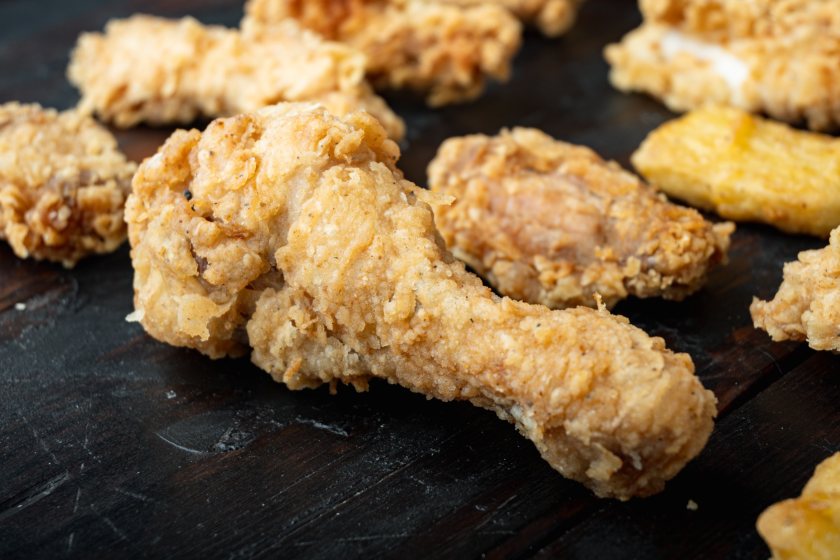
Fast food chain KFC has dropped its pledge to improve animal welfare in the UK by sourcing its chicken from slower-growing breeds by 2026.
The firm announced five years ago that it would stop using fast-growing broilers - dubbed 'Frankenchickens' - as part of a measure to improve UK animal welfare.
As part of the pledge, the fast food giant signed the Better Chicken Commitment (BCC) in 2019, but it now says it will not be able to meet it.
KFC blamed farmers for not switching to slower-growing breeds in large enough numbers, and said it was working to source meat from farms with lower stocking densities.
Fast-growing chickens have been dubbed 'Frankenchickens' due to welfare concerns, including higher mortality rates, lameness and muscle disease.
Figures show that around 90% of the 1.1 billion chickens slaughtered for meat in the UK are from fast-growing breeds.
But animal welfare campaigners point out that these chickens can have severe health and welfare issues.
Ruth Edge, head of sustainability at KFC UK and Ireland, told the recent Egg and Poultry Industry Conference in Wales that the 2026 goal was not achievable.
She said: “We’re not saying we’re never going to, but we’re saying for 2026, and the way the market has developed, or lack of, we’re not going to be able to do it.”
Rudi Van Schoor, chief supply chain officer at KFC Europe, added: “The reality is, at the moment, the UK poultry industry is not yet in an operational and commercial position to deliver the commitment by 2026.
"But, we remain committed to the Better Chicken Commitment framework – we signed up in good faith and with the best intentions."
The BCC campaign encouragers farmers to provide broilers with more space, light and enrichment and ensuring they only use slower-growing, higher welfare breeds.
Food firms and retailers that have signed up to the BCC include Marks & Spencer, Burger King, Subway, Nando’s, Nestlé and Greggs.
What is the Better Chicken Commitment?
The BCC is a set of requirements for improving broiler welfare driving the food industry towards higher welfare practices. The key requirements are;
• Birds need to be given more room in order to have the chance to peck, scratch, dust bathe and rest without being disturbed
• Natural light must be provided, which means birds won't spend their whole lives in dim, artificially lit conditions
• Provision of enrichment items, things that the birds can explore and peck at, as well as perches so birds can roost
• No cages or multi-tier systems
• More humane methods of slaughter - eliminating the shackling and inversion of conscious birds.
• The use of only slower-growing breed of chickens which have better health and welfare outcomes
